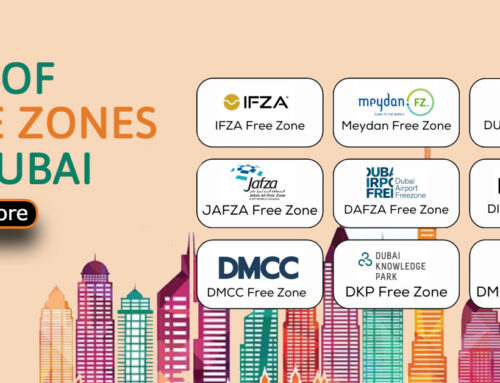In modern business relationships, Non-disclosure Agreements are one of the most common agreements signed between parties while entering into a business partnership or in any similar relationship. Therefore, a Non-Disclosure Agreement (NDA) is an agreement in which each of the parties makes a promise not to disclose such information that has been received by the party in pursuance of the business relationship to any third party until the termination of the Agreement or for such term as mutually decided and promised by the parties. Such information may include any proprietary information, intellectual property such as patents, trade secrets, any technical information, a list of vendors or customers, or any other important information. Agreements like these are of utmost importance for businesses in the age of technology and have global applications. The NDA Agreement goes by the name Mutual Confidentiality Agreement, or Confidential Disclosure Agreement or Secrecy Agreement, or Proprietary Information Agreement.
While signing an NDA, each party to the agreement agrees to abide by the terms and conditions of the agreement and also agrees with the fact that any deliberate failure will invite a legal course of action against the other. Though an NDA agreement could be used for multiple business and legal purposes, it is especially relevant in the case of an employer-employee relationship due to the potential risk of access towards business and proprietary information by the hired employee, therefore, it becomes not only important but also sensible to enter into an NDA agreement by the employer-employee, which is also known as an Employee Non-Disclosure Agreement (NDA) is a unilateral confidentiality agreement.
Be it a bigger corporation or a start-up information such as trade secrets or any other intellectual property could be of utmost importance for keeping together the integrity of the business.
Important Terms and Conditions of Employee NDA Agreement
Defining Confidential Information;
While making any employee sign a confidentiality agreement, it is necessary to set out a clear definition of confidential information, so that it could be easier for the employee to define what information is confidential or what is not, and save himself from revealing any information by mistake.
Term of the validity of the Agreement
Next, it is important to set out the term for the validity of the agreement or any other condition which will bring an end to the NDA Agreement. Most employers prefer to put a condition that any information which has been perceived by the employee in pursuance with the nature of his employment must be either returned or destroyed on termination of his employment.
Applicable Jurisdiction
As much important it is to put other terms, it is important to clarify the geographical location about where the agreement will be applicable and where any of the parties will bring a cause of action in case of disputes if any arises between parties.
Obligation to disclose information
Like any other mutual confidentiality agreement, it is necessary to put terms and conditions where the employee concerned will be allowed to disclose confidential information for instance in case of administrative inquiries or to any legal authority required under any legal provision.
Remedies & Legal Costs
This clause is similar in every NDA providing for the action decided to be taken by each party in case of any mutual disputes. For instance, parties may mutually decide for referring to any arbitrator or arbitral tribunal or may take the matter directly to the court. The parties may also pay for legal costs etc. at the time of entering the agreement to avoid any further confusion.
Importance of signing a Non-Confidentiality Agreement
Protection of Business interests
A NDA agreement is much useful in the sense that each corporation has sensitive information and there is always a potential risk of such information being leaked or spread to any potential investor or competition of the business. Thus, signing an agreement with any employee regardless of the nature of his employment will prevent him from the disclosure of any such confidential information which comes in his knowledge.
Protection of IPRs of the organization
Modern world is full of creativity and innovations are continuously taking place over existing products/services and technologies as a result of which more and more IPRs are being developed and registered. IPRs come with huge growth and profit earning potential for an organization, but if the creative idea or invention is revealed to any third party or competitor, it is huge damage for the business. Therefore, the NDA inhibits any disclosure of the same by any employee or any other person in the organization to any outsider except where it is allowed in pursuance of the Agreement.
Option to take Legal Recourse
Since once signed by both the parties, the NDA agreement is valid and binding. The employer gets the benefit to bring a cause of action in the court where the employee deliberately fails to abide by the terms and conditions of the Agreement.
- Encourages Out-of-Court Settlements in case of Disputes– The long and tedious process of deciding a dispute through the Indian court system is known to all. However, in case of any dispute related to an NDA, the parties may decide in advance to refer the matter to the Arbitration Tribunal or a Sole arbitrator which on being satisfied by both parties will have the same bearing as that of a civil court which is not available otherwise.
- Offering an obligation to maintain mutual trust and confidence–A employer-employee relationship is that of trust and confidence and putting a legally binding agreement would naturally bring an obligation on the employee to faithfully abide by the terms and conditions in the course of the employment and even after the termination of his employment as per the decided terms and conditions between parties.
Hence, a Non-disclosure Agreement provides a genuine legal framework for the protection of sensitive and confidential business information received by them owing to the nature of their employment. On one side it naturally creates a sense of responsibility on the employee to protect the information and not to divulge the same to any third party and on the other hand opens the doors of legal recourse against the employee on his failure to maintain confidentiality. However, it is always advised to practice caution while drafting the agreement and employ a legal professional to protect the interests of the employer and that of the business organization efficiently.






